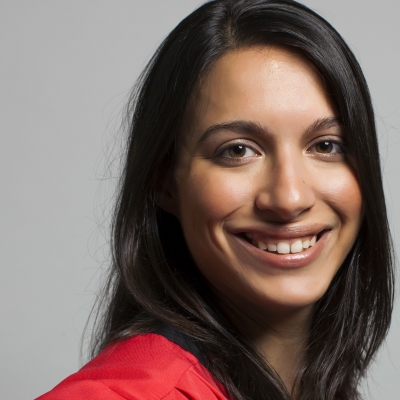Two years ago, Jimmy Kimmel teased TV's biggest ad buyers from the stage during ABC's upfront pitch at Lincoln Center, reminding them that they keep paying higher prices for smaller audiences. If TV has delivered only variations on that theme since then, Kimmel has seen other things change.
He's gone from apolitical late-night host, best known for a segment where celebrities read mean tweets about themselves, to using his monologues to advocate for health-care reform and gun safety. (He also found himself in a feud with Fox News host Sean Hannity after making fun of Melania Trump.) And as host of the Academy Awards in March, Kimmel addressed Hollywood at the first Oscars since the sudden fall of Harvey Weinstein set off the #MeToo movement.
Kimmel, who will bring his show back to Brooklyn this fall, remains third in late night, but he has meaningfully closed the gap with No. 2, Jimmy Fallon. "Jimmy Kimmel Live!" increased viewers 3 percent over last year to 2.3 million and held its rating among 18-to-49-year-olds steady at 0.48, compared with 3.9 million viewers and a 0.60 rating for CBS's "The Late Show With Stephen Colbert" and 2.7 million viewers and a 0.67 for NBC's "The Tonight Show Starring Jimmy Fallon." None of this includes online viewing, which Kimmel says has led to "exponentially" more people watching late-night TV than ever. (The first week in May was Kimmel's most-watched week on YouTube, with "Jimmy Kimmel Live!" amassing more than 81 million views, thanks to an "Avengers" edition of "Mean Tweets.")
Kimmel is the top-grossing alternative show on ABC; Mercedes Benz recenty renewed its sponsorship for the Live Concert series for two more years.
Kimmel returns to ABC's upfront pitch next week to roast the ad industry. He spoke with Ad Age about the future of late-night TV, stand-up in the age of Trump and the media habits of his 3-year-old daughter. Our conversation has been edited.
You've had a year off from the upfronts—it doesn't feel like you missed much. As you like to joke, advertisers are still paying more for less. What's your impression of the state of the ad industry since you last addressed the audience at Lincoln Center?
First of all, I wasn't joking. People laugh, but it's not a joke. The fact that advertisers are willing to pay more and more as ratings get smaller and smaller leads me to believe advertisers were underpaying for a long time. It's the only way it makes any sense.
How do you prepare for the upfronts?
Most of the subjects I write jokes for aren't revealed until the day before the upfront itself, so a lot of it is just staying up most of the night the night before figuring out what I'm going to make jokes about.
How do you see the late-night landscape evolving as fewer people watch TV live and consume content on multiple platforms and devices?
Fewer people might be watching on TV, but a lot more people are watching. I just got an email like 12 minutes ago and it gives our YouTube views. We had 43 million new video views last week alone and that's a typical week. And that's just YouTube. It doesn't count Facebook, Hulu, Twitter, anywhere else these videos might be posted. And it only counts the official posting. The truth is, exponentially more people are watching late-night TV than they ever have, including the days of Johnny Carson and "The Tonight Show" and that era of TV when there was only one thing to watch. They're just watching it in many different ways.
Do you see a time where "Jimmy Kimmel Live!" no longer airs on traditional TV and lives solely in a digital world?
I don't think so. Starting on TV and that being your jumping off point puts you way ahead of the game. It's definitely important. It seeds the clouds, and your videos, as a result of being from TV, are more widely shared. We have a big advantage over someone who just posts a video to their YouTube channel and we try to keep pretty closely tied to current events. It becomes a natural part of your daily news.
Speaking of current events, you've said that you had fun sparring with Sean Hannity. But how dangerous are these types of public battles?
Well, the kind of battles Biggie and Tupac were engaging in were dangerous. There's very little actual danger with me and Sean Hannity insulting each other. But people pick sides, and the sad truth is, I'm never going to convince anyone who loves Sean Hannity of anything, and vice versa. You're really just masturbating.
In the Trump era, has it become harder to be funny without offending a group of people?
I don't think that has anything to do with Trump. It has a lot more to do with social media. I do think it's a very interesting time for comedy because people love to pile on, and part of being a comedian is throwing things out there, trying things, saying things, and not knowing what response you might get back. And when people are careful, it limits creativity. Thinking about what you're going to say before you say it isn't a great thing for the art of comedy.
Are there any topics or jokes that are off limits? Anything you have avoided in this intense climate?
Some things you have to be more careful with than others, but I don't think there are any subjects or categories I wouldn't talk about. What I worry about more than anything is trying to come up with an original take on something. Especially now, you have Twitter, you have thousands of people writing jokes the minute a news story happens and you have eight hours to go before you tape your show. It used to be that we had first crack at everything—the late-night daily shows would be your first take.
How do you stay creative in that environment? Are you reading what people are saying on Twitter or do you avoid it to not cloud your own writing?
I will read things and a lot of our writers will be on Twitter, but we're very sensitive and careful of that. We really try to make sure we aren't doing a joke that has already been done. With that said, people are very quick to accuse others of stealing jokes. Some people don't seem to understand that we tape our show at 5 p.m. and it doesn't air for another four hours. And they'll say, "You stole that joke," and I'll be like, "I was already in bed when you wrote that joke."
What's your media diet?
My home page is CNN.com. No one is unbiased anymore, but they do a good job with the news. I go to ESPN.com for sports stuff. I read a lot of The New Yorker, New York Times, Washington Post. I bounce around a lot. There are a lot of writers on Twitter. There is a guy, Charles Pierce at Esquire—I always read his stuff.
So you're not checking Facebook for your news?
I rarely go on Facebook. I drive my staff crazy if I try to post something. They're like, you didn't post it on your show page, you posted it on your page. I say I'm like a grandpa, but I have a feeling a lot of people's grandparents are better than I am.
Have you learned anything through your kids' media consumption habits? Are there any apps or YouTube stars or influencers on your radar that might not have been otherwise?
Yes. My big influencer is my three-and-a-half-year-old daughter, who if we need to keep her quiet for whatever reason, we hand her YouTube Kids. She has an attention span of about four seconds and there is no rhyme or reason for when she gets tired of a video and clicks one down at the bottom. She likes to see all her options at once. This can't be good for her brain. My daughter now speaks in that narrator-speak like the YouTube Kids show host. When she's playing with her dolls, she'll say, "We have Paw Patrol Chase here with Spider-Man." We actually heard her say these words. We overheard her saying, "Thanks for watching my video. Subscribe here."
Well, she's preparing to take over for you.
[Laughs] I guess so.
Looking at the late-night landscape, do you expect any meaningful changes in the faces of late night or the format?
No. There will be more and more shows. There are shows that aren't really late-night talk shows that are branded that, for whatever reason, that aren't really that. There's more variety now when it comes to talk shows. There are more niche shows. But ultimately, the formula of having a desk and two empty chairs and a guy in a suit telling jokes has been around for a long time and is probably going to be around for a long time. Just in the same way that the "Today" show and "Good Morning America" are similar structurally and are institutions that are somewhat inviolable.











